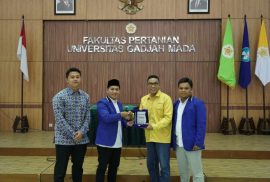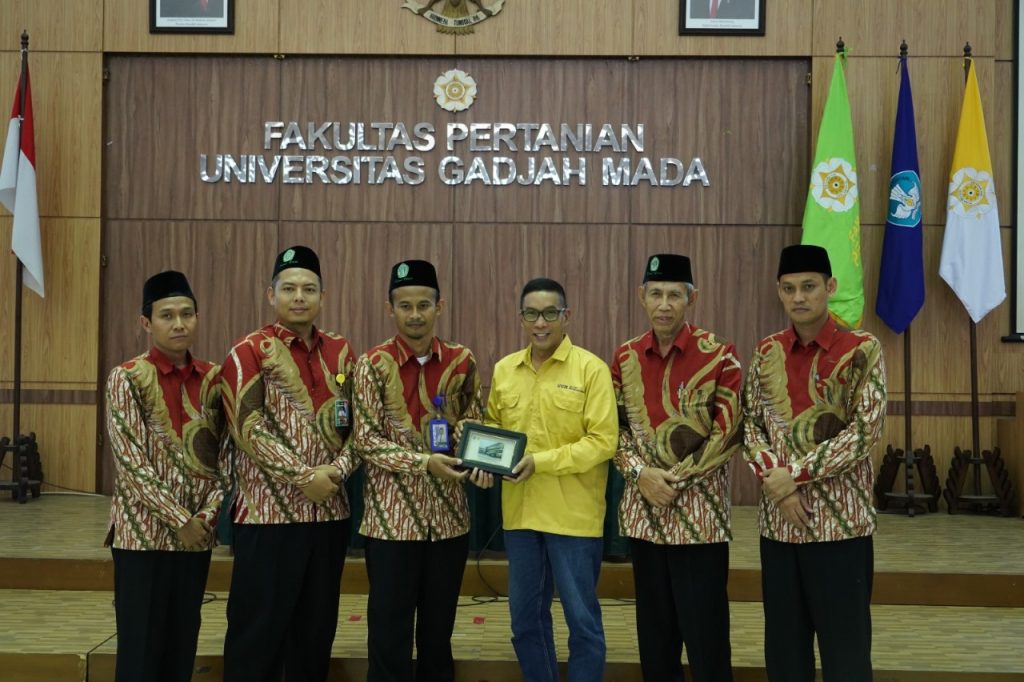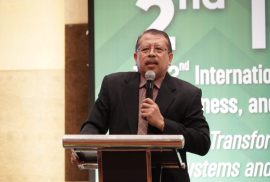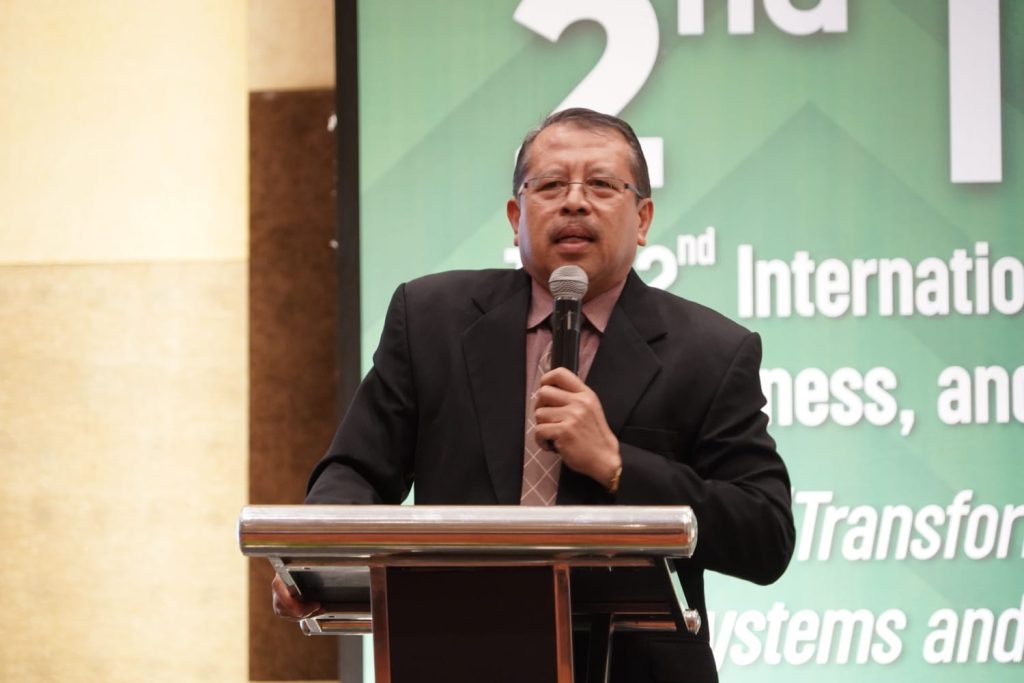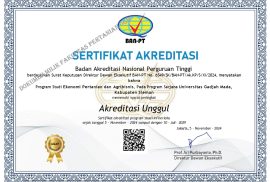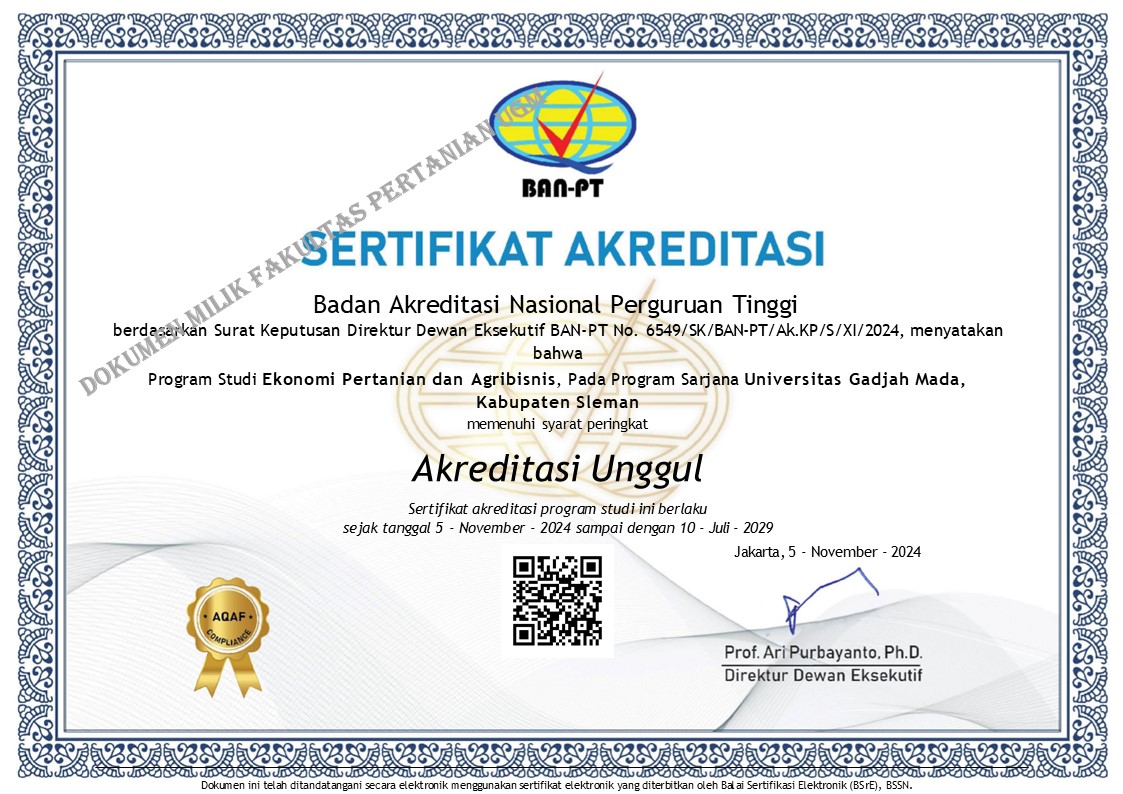The Faculty of Agriculture, Universitas Gadjah Mada (Faperta UGM) once again welcomed high school students for a campus visit. On Thursday, 7 November 2024, more than 300 students from SMA Darul Ulum Peterongan Jombang and SMA Qur’an El Tahfidh Bogor visited the Faculty of Agriculture at UGM. The students displayed great enthusiasm and curiosity in learning more about UGM and its Faculty of Agriculture.
The student delegation was warmly welcomed by Agus Sudarwinto, S.E., M.M., Head of the Administrative Office of the Faperta UGM, at the Prof. Harjono Danoesastro Auditorium. Several lecturers, including Dr. Adyatma Irawan Santosa, S.P., M.Sc., Dr. Najmu Tsaqib Akhda, S.P., M.A., and Susanti Mugi Lestari, S.P., M.Si., Ph.D., presented an overview of the Faculty of Agriculture and UGM to the students.

